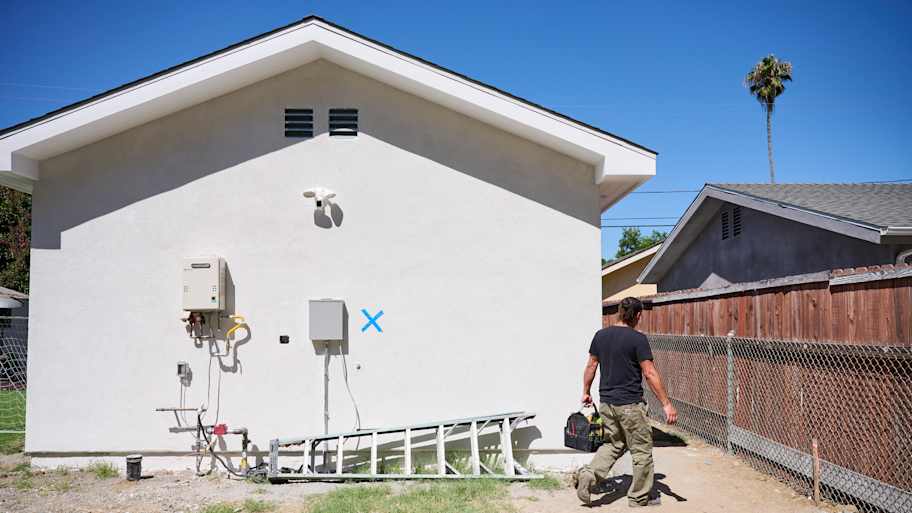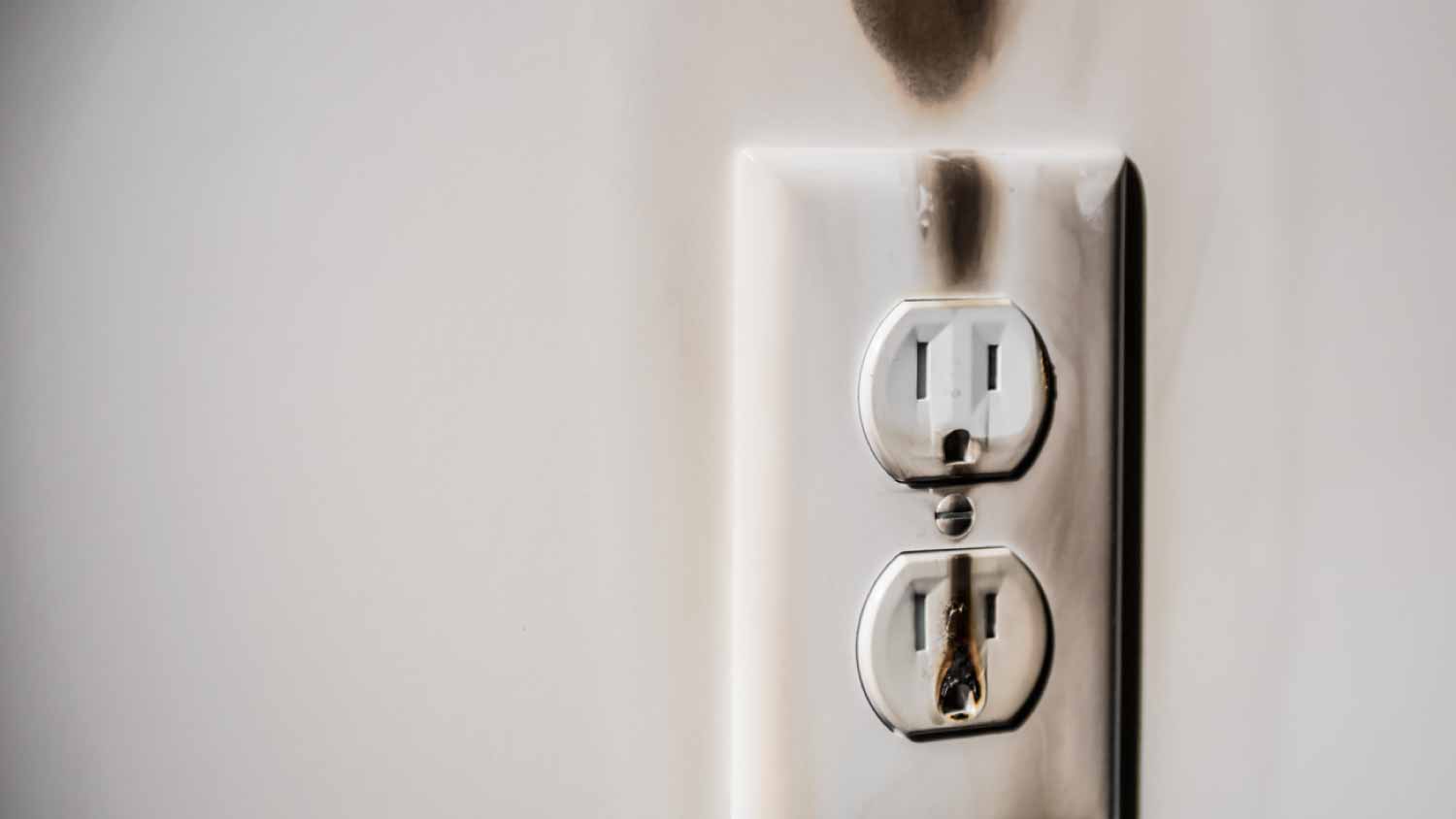Why Is My Light Switch Buzzing? 5 Common Reasons
Shed some light on what all the buzz is about


A buzzing switch may be due to a wrong bulb or faulty wiring.
Fix a buzzing switch fast to avoid safety and fire risks.
Stay safe! Use precautions or call an electrician.
You may take your light switches for granted as a necessary but unremarkable part of your home’s electrical system, but when something goes wrong with a light switch, it can be dangerous to ignore it.if you're asking, "Why is my light switch buzzing?" it could indicate any number of problems, ranging from merely annoying to potentially dangerous. This guide explores six common causes of a buzzing light switch, how to fix them, and how to know when it’s time to call a pro. Always use caution when working with electrical fixtures—turn power off at the breaker before investigating the buzzing’s cause.
1. Too High Wattage
Light switches can only handle a certain amount of wattage—if the bulbs or fixture you’re using have higher wattage than the switch is designed for, it can cause a buzzing noise. The bulbs or fixture will attempt to draw full power from the switch, and when the switch is unable to provide that power, it will buzz as a result of the continual attempt to draw wattage.
How to Fix It
Check the wattage that your switch is designed for and use a smaller fixture or lower wattage bulbs to prevent the switch from being overtaxed.
2. Incompatible Bulb

Depending on the type of light switch that’s buzzing, you may be using an incompatible bulb. This is most often seen with dimmer switches and bulbs—using standard bulbs on a dimmer switch or dimmable bulbs on a standard switch can cause the switch to buzz.
How to Fix It
Only use dimmable bulbs on fixtures connected to a dimmer switch and standard bulbs for a standard switch.
3. Loose Wiring
Loose wiring can cause poor or incomplete connections between internal wires, creating a buzzing sound and posing a potentially serious fire risk. Loose wires can also cause your switch to intermittently stop working, experience dips in power, or make the switch heat up or damage other internal components.
How to Fix It
If you’re confident in your ability to fix a light switch, check the wiring connections and tighten up any loose wires—remember to turn off the breaker to cut power to the switch first. If you’re not comfortable performing electrical work, call an electrician to fix the problem.
4. Switch Wear and Tear
Over time, light switches can go bad from regular use and wear and tear. Older switches can make buzzing sounds as components fail, giving you a sure indication that something isn’t right. If your switch is older, heavily used, or shows signs of damage, a buzzing sound could be letting you know it’s reached the end of its lifespan.
How to Fix It
The safest way to handle an old, worn-out switch is to install a new light switch. Replacing individual components is a more complex and time-consuming project than replacing the entire switch, and you’ll have the peace of mind of knowing all the switch components are brand-new.
5. Electrical Arcing
Electrical arcing occurs when the electrical current travels over an open gap somewhere in the circuit, discharging energy that can lead to a spark. Electrical arcing is a serious, potentially dangerous situation that should be fixed as soon as possible to reduce the risk of an electrical fire.
How to Fix It
Turn off power to the switch at the breaker and call an electrician to assess and fix the problem. Electrical arcing can put your home and your safety at risk, so don’t wait to address the issue.
When to Call a Pro

Electrical work can be dangerous for an inexperienced DIYer, so if you’re not completely comfortable working on electrical fixtures, call a local electrician. A pro can quickly and safely repair or replace a faulty light switch, and the cost to install a light switch is worth the peace of mind of knowing the job was done right. Don’t risk injury, property damage, or a house fire by trying to tackle electrical work without experience.
How to Prevent a Buzzing Light Switch
To prevent a buzzing light switch, first ensure that the switch is in good condition and wired properly. If your home has an older electrical system, hiring a pro for an electrical inspection can alert you to any potential problems so you can have them repaired before they become dangerous or cause damage.
Always confirm you’re using the correct type, wattage, and number of bulbs for your light switches. Overloaded or incompatible switches can cause buzzing as well as serious electrical issues and fire risks.
Frequently Asked Questions
Light switches can last for decades when installed and maintained correctly. Improper wiring, heavy wear and tear, or too much wattage draw can cause light switch failure long before the expected end of a light switch’s life. Light switches that are hot to the touch, making a buzzing noise, or failing to work consistently should be inspected to find and repair the underlying cause.
A faulty light switch can be a serious fire hazard. Light switches with exposed wiring, loose connections, or other electrical problems can cause overheating or sparking in or behind the switch, igniting nearby flammable material. If you suspect your light switch is faulty, turn off power at the breaker and contact an electrician.





- Home Generator Repair
- Lamp Repair
- Electric Repair
- Generator Installation
- TV Antenna Services
- Emergency Electricians
- Commercial Electricians
- Attic Fan Installation
- Attic Fan Repair
- Exhaust Fan Installation
- Electric Inspectors
- Subcontractors
- Electrical Construction
- EV Charger Installer
- Chandelier Installation
- Doorbell Installation
- Bathroom Fan Installation
- Ring Installers
- Electrical Panel Upgrade










